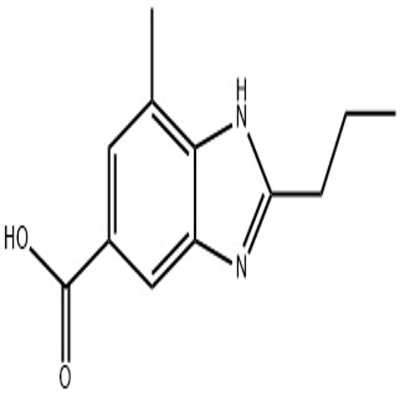-
Categories
-
Pharmaceutical Intermediates
-
Active Pharmaceutical Ingredients
-
Food Additives
- Industrial Coatings
- Agrochemicals
- Dyes and Pigments
- Surfactant
- Flavors and Fragrances
- Chemical Reagents
- Catalyst and Auxiliary
- Natural Products
- Inorganic Chemistry
-
Organic Chemistry
-
Biochemical Engineering
- Analytical Chemistry
-
Cosmetic Ingredient
- Water Treatment Chemical
-
Pharmaceutical Intermediates
Promotion
ECHEMI Mall
Wholesale
Weekly Price
Exhibition
News
-
Trade Service
2-Methoxy-3-pyridinemethanol, commonly referred to as MPMP, is a versatile chemical compound that is widely used in the pharmaceutical, agrochemical, and other industries.
Its unique properties make it a valuable precursor for the synthesis of various chemicals, drugs, and other products.
In this article, we will explore the synthesis, properties, and applications of MPMP in the chemical industry.
Synthesis of MPMP
There are several methods for synthesizing MPMP, each with its own advantages and disadvantages.
One of the most common methods is the oxidation of 2-methoxy-3-pyridineacetic acid, which is obtained from the reaction of acetyl furan with sodium hydroxide and pyridine.
The oxidation is typically carried out with potassium permanganate or chromic acid, resulting in the formation of MPMP.
Another method for synthesizing MPMP involves the reaction of pyridine-3-aldehyde with sodium metabisulfite.
This method is also known as the Jergenson-Geiger reaction.
The aldehyde is first prepared by reducing pyridine-3-carbaldehyde with formalin, and then treated with sodium hydroxide and sodium nitrite to form the aldehyde.
The aldehyde is then reacted with sodium metabisulfite in the presence of water to yield MPMP.
Properties of MPMP
MPMP is a water-soluble, colorless liquid with a mild unpleasant odor.
It is a weak acid, with a pKa value of approximately 9.
7, and is slightly soluble in organic solvents.
MPMP is relatively stable under normal conditions, but it can degrade over time, especially in the presence of light and moisture.
One of the most important properties of MPMP is its ability to act as a precursor for the synthesis of various chemicals and drugs.
This is because MPMP can undergo a variety of chemical reactions, such as oxidation, reduction, and substitution, to form a wide range of products.
Applications of MPMP
MPMP is widely used in the pharmaceutical industry as a building block for the synthesis of drugs.
It can be converted into a variety of compounds, such as anti-inflammatory drugs, analgesics, and antidepressants, through a series of chemical reactions.
MPMP is also used in the agrochemical industry as a herbicide, and its oxidation products have been found to have insecticidal properties.
In addition to its use in the pharmaceutical and agrochemical industries, MPMP has other applications in chemical synthesis.
It has been used in the preparation of pyridine nucleotides, which are important co-factors in many biochemical reactions, and in the synthesis of nitrogen-containing heterocyclic compounds.
Conclusion
MPMP is a versatile chemical compound with a wide range of applications in the pharmaceutical, agrochemical, and other industries.
Its ability to undergo a variety of chemical reactions makes it a valuable precursor for the synthesis of many different products.
The synthesis of MPMP can be achieved through several methods, each with its own advantages and disadvantages.
The properties of MPMP, such as its acidity, solubility, and reactivity, make it a useful precursor in chemical synthesis.
Overall, MPMP is an important chemical compound in the chemical industry, and its applications continue to expand.





![benzyl N-{2-[4-(4,4,5,5-tetramethyl-1,3,2-dioxaborolan-2-yl)phenyl]ethyl}carbamate](https://file.echemi.com/fileManage/upload/goodpicture/20210823/m20210823171124543.jpg)

